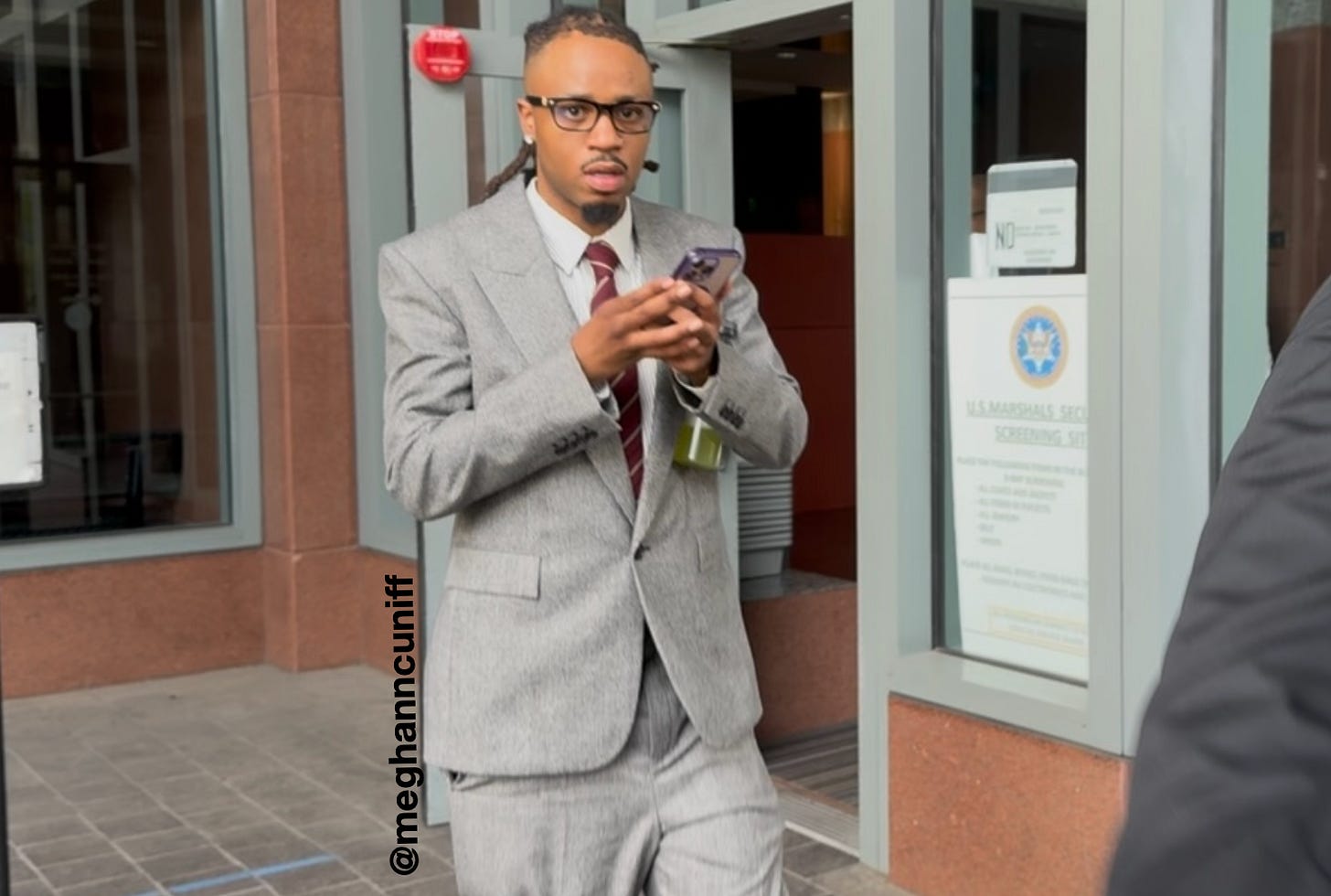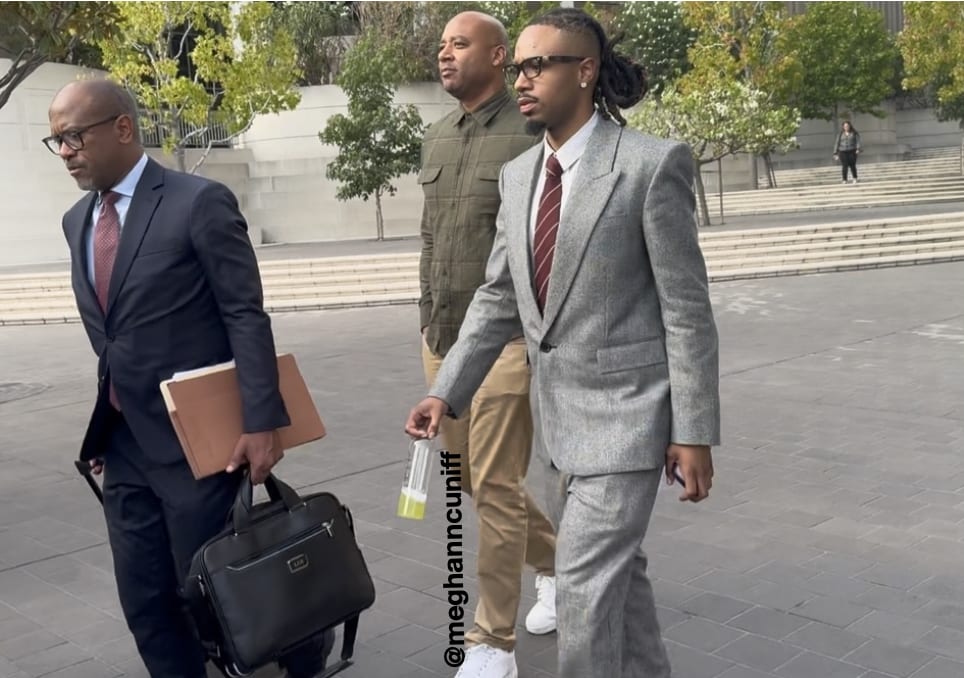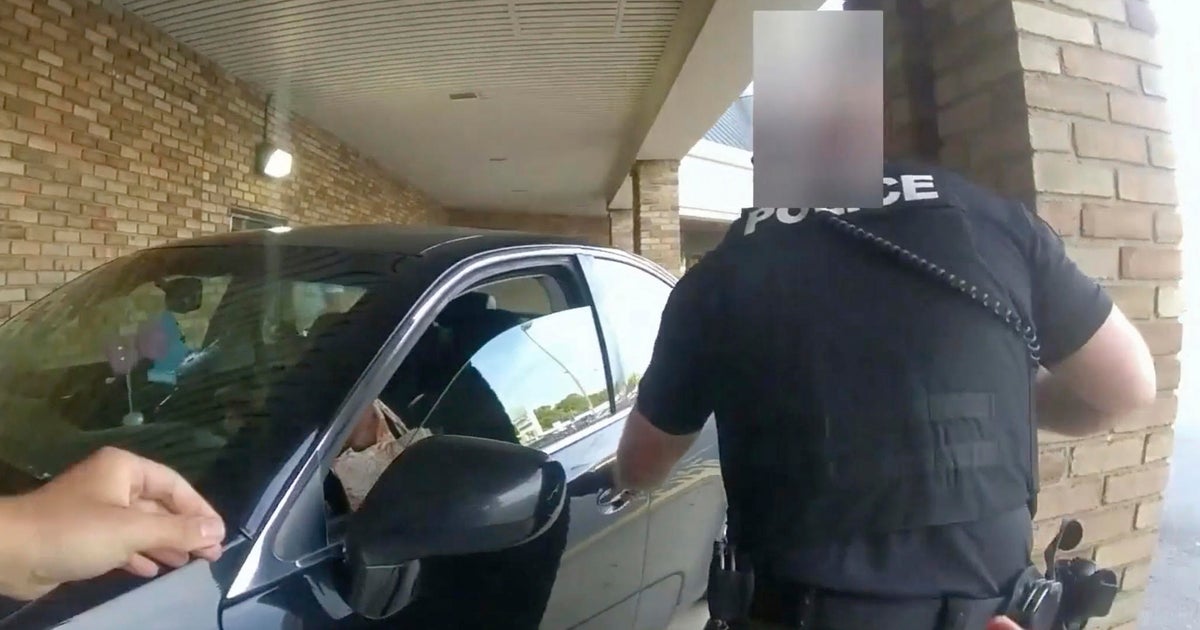
A woman suing hip-hop music producer Metro Boomin testified Tuesday in Los Angeles that he raped her in a hotel room in 2016, and she realized she should sue him eight years later when she was high on the psychedelic plant Ayahuasca during a therapy session in Peru.
“I recall being instructed from the medicine that this is the root of your issues for the past 10 years, this incident with the defendant,” Vanessa LeMaistre testified. “This is the root of continual trauma and pain and suffering, and that I needed to address this, seek justice and contact lawyers.”
LeMaistre said she didn’t hallucinate on Ayahuasca, and she’s always known she couldn’t have consented to sex with Metro, legal name Leland Tyler Wayne, after she took half a Xanax pill and Metro gave her a liquor shot that left her “completely incapacitated.”
But, LeMaistre said, “I didn’t know consent means when someone says no or they’re not able to consent, that that still is rape.”
“Did Ayahuasca inform you that you had been sexually assaulted by the defendant?” lawyer Michael J. Willemin asked.
“No, it did not,” LeMaistre answered.
LeMaistre said she believes the 2017 song “Rap Saved Me,” which Metro produced for rappers 21 Savage and Offset, references her assault with the lines, “She took a Xanny (Yeah), then she fainted (Yeah) | I’m from the gutter (Hey), ain’t no changing.”
LeMaistre will continue testifying in U.S. District Judge R. Gary Klausner’s courtroom on Wednesday as the only plaintiff’s witness in a four-day trial over a lawsuit filed in October 2024 by Willemin’s Wigdor LLP, the New York City law firm that sued Sean “Diddy” Combs on behalf of Cassie Ventura and has in the last two years sued dozens of other celebrities alleging sexual assault.
Legal Affairs and Trials with Meghann Cuniff is a reader-supported project that utilizes my 20 years of reporting experience in traditional media to bring you in-depth news about major legal issues. If you want to support my work, consider upgrading to a paid subscription.
LeMaistre referenced Cassie’s lawyers in writings from her Ayahuasca-induced therapy session that she labeled “Plan Ayahuasca.” The writings mention seeking damages of $3.4 million to $3.7 million and the need to make the lawsuit go “viral” on the Internet by tagging Metro’s and 21 Savage’s social media accounts.
Metro’s lawyer Lawrence Hinkle said LeMaistre sued because she is greedy and upset “because my client stopped giving her attention after the last time they had sex.” She texted him several times after the alleged assault asking to meet again, and she wrote in her journal that she wanted to see him again and thought it would be beautiful.
“We are here because she thought my client could solve her financial problems,” said Hinkle, managing partner of Sanders Roberts LLP in Los Angeles. “And so she made a claim that he sexually assaulted her, expecting that he would just write a check to make it all go away quickly and quietly.”
Hinkle said Metro is “one of the top music producers in the world” and “truly an American success story, maybe a universal one” who is on trial “to publicly clear his name.”
“Ladies and gentlemen, accusing someone of sexual assault is extremely serious, and it is devastating,” Hinkle told the jury. “It is especially devastating to someone who has been falsely accused, and that is the reality for my client.”
Metro, 32, will testify as his own defense witness, along with others, including two experts that Hinkle emphasized LeMaistre’s lawyers have no witnesses to counter. April Thames, UCLA’s psychology chief, will testify that LeMaistre “meets the criteria for borderline personality disorder with psychotic features, major depressive disorder and post-traumatic stress disorder.”
“She will testify that there is no credible evidence to indicate that the alleged assault has contributed to LeMaistre’s current psychological functioning. Plaintiff will not be calling an expert to refute Dr. Thames’ testimony,” said Hinkle, who is defending Metro with Sanders Roberts founding partner Justin Sanders and associate Bobby Daniels, Jr.
Willemin told jurors that “in a perfect world” LeMaistre’s Ayahuasca plan “would have been written a little bit differently,” but he disputed the defense’s attempt “to convince you that the existence of this plan is somehow evidence that Ms. LeMaistre has ill motives.”
“You will see the writings of someone who is trying to process and absorb trauma associated with sexual assault,” said Willemin, a licensed attorney in New York since 2012 who is working with Wigdor LLP Of Counsel Monica Hincken and lawyers at the Los Angeles-based firm Girard Bengali, APC, including Omar H. Bengali.
To try to counter the defense claim that she’s suing out of greed, Willemin asked LeMaistre about her former relationship with a famous rapper and emphasized she’s never accused him of sexual assault. LeMaistre said she dated Lil Wayne for about 10 months and considers him to be more famous, “like legendary speaking.”
LeMaistre testified she first took Ayahuasca in 2019 to address the trauma of her son dying in 2016 when he was nine months old. She said she told Metro about the death of her son after she met him in Las Vegas then joined him at music studios in Los Angeles on five to seven occasions.
She said they once had “kind of a subtle cuddle” on a couch in a music studio but she never wanted to have sex with him and didn’t think he was interested until she awoke to him on top of her in a Beverly Hills hotel room. She testified she was conscious only for a few seconds, then regained consciousness when he was forcing himself on her orally.
LeMaistre testified she doesn’t know how she got to the hotel, and she recalls looking in a bathroom trash can for condom wrappers before leaving. She said she “was escorted down the hallway to a side street where there were two black cars parked with five men standing outside.”
“I was directed by the defendant to go into the second black car, and that was the car for me to go into to go,” she said.
She didn’t visit a hospital or report Metro to police, but she exchanged texts with Metro that Willemin said corroborate her account of what happened, because she asked Metro if he used a condom and he replied that he did.
“That response is evidence of his consciousness of guilt. If Ms. LeMaistre was conscious, he would have said, ‘You remember. Of course, I did,’” Willemin said.

Willemin spent some of his opening statement and his direct-exam of his only witness trying to refute defense allegations that she tried to tamper with evidence by attempting to alter medical records.
LeMaistre visited a Planned Parenthood clinic after learning she was pregnant in November 2016. She said the encounter with Metro was in or around September 2016, so when she decided to sue him last year, “it was not Leland’s baby, but she wanted to be able to argue that it was his baby,” Hinkle said.
LeMaistre contacted the clinic in what Hinkle portrayed as an attempt to change the record but she said was an attempt to “hone in on the date the incident took place.”
“Were you trying to doctor a record so that the defendant would look more likely to be the father of your child?” Willemin asked.
“No, I was not,” LeMaistre answered.
LeMaistre’s medical records state she told clinic workers she hadn’t been sexually assaulted. She contacted the clinic trying change the records after she decided to sue, but she told Willemin on Tuesday she simply wanted to correct the record, not falsify evidence, “because I wanted what I know is true to be reflected.”
Willemin moved into questions about Ayahuasca, which LeMaistre testified is “an ancient indigenous ceremonial plant that’s been used for thousands of years to help heal any mental, physical, emotional, spiritual and psychological ailments.” It’s related to the naturally occurring DMT, and “for me, it’s always been a peaceful experience, pretty relaxing,” she said.
“I never had any anything harmful or negative to say about it. It’s very revealing in the sense that it acts as a detective and it shows you what you need to look at that you don’t want to see,” LeMaistre said.
“Now, prior to taking Ayahuasca in 2024, were you aware that the defendant had sexually assaulted you?” Willemin asked.
“Yes,” LeMaistre answered.
“Prior to taking Ayahuasca in 2019, were you aware that the defendant had sexually assaulted you?” Willemin asked. “Yes,” LeMaistre answered.
“And prior to taking Ayahuasca in 2019, had you told multiple mental health professionals that the defendant had sexually assaulted you?” Willemin asked.
“Yes,” LeMaistre answered.
Judge Klausner, a 2002 George W. Bush appointee, sustained a defense objection when LeMaistre said what Ayahuasca is and ordered her answer stricken.
The judge told Willemin, “You are going to have to call an expert in that area, counsel.” He allowed LeMaistre to testify about whether she was hallucinating or in a psychosis, which she said she was not.
Testimony ended Tuesday with Willemin asking LeMaistre to “describe for the jury as comprehensively as possible, the emotional distress and trauma that has been caused to you as a result of being sexually assaulted by the defendant.”
“This completely shattered my self esteem, my self worth. You feel like nothing,” she said. She said she needs “a lot of psychological and mental health to get through this, and a lot of help in a lot of ways.”
“I don’t feel like I can trust anybody. I don’t leave my house. I stay home all the time. I feel like I don’t have a life, literally,” LeMaistre testified.
The trial continues Wednesday morning at 8:30 a.m. It is expected to end by Friday. I’ll have more articles, of course.
Court documents from Vanessa LeMaistre v. Leland T. Wayne p/k/a Metro Boomin, 2:24-cv-10378, are available below for paid subscribers. Your paid subscriptions make my work possible.
Source link


